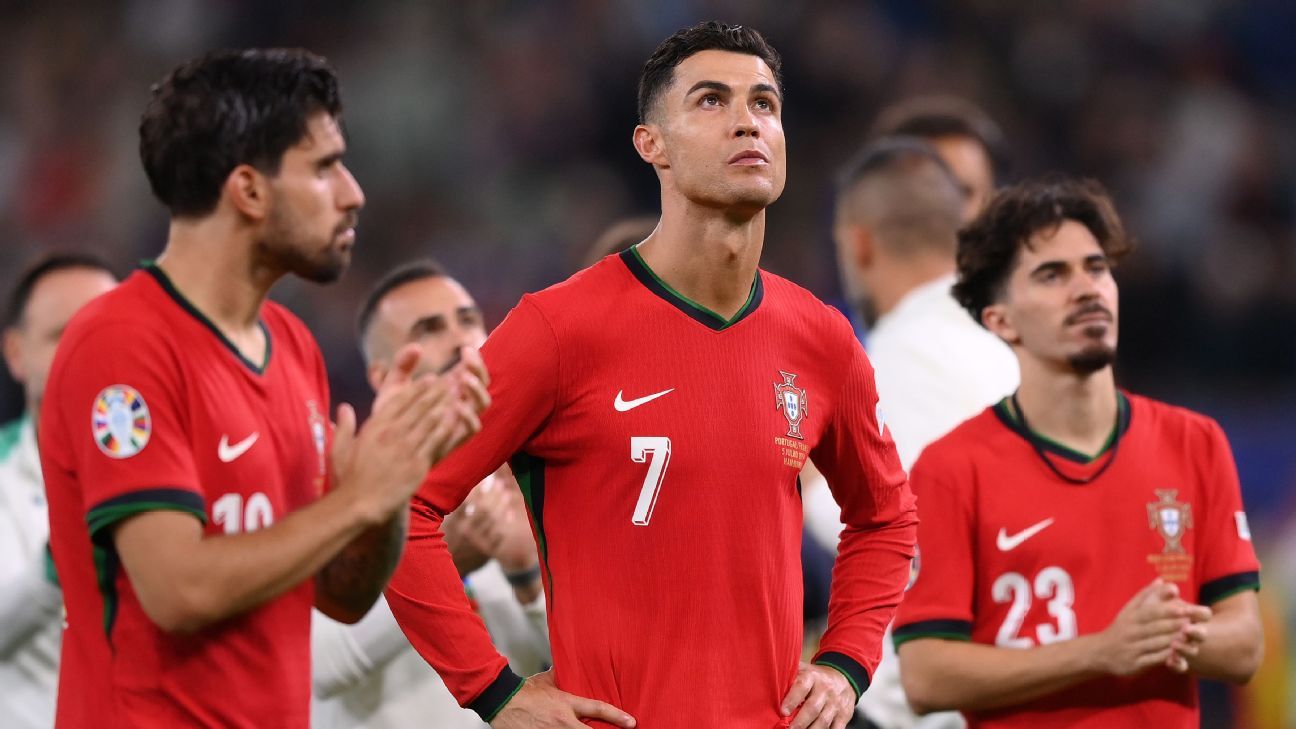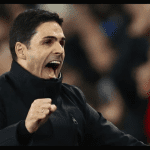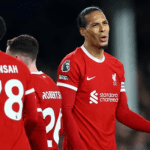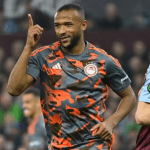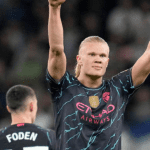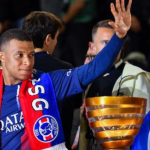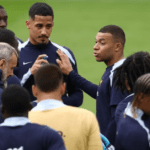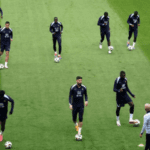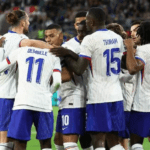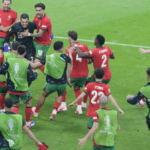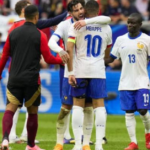HAMBURG, Germany — Cristiano Ronaldo stood amongst his teammates, hands on hips, lips pursed, eyes scanning the Portuguese crowd behind the goal. The iconic forward, who has long been a talisman for Portugal, was now just one of the many faces in a team united in disappointment. Beside him, Rúben Dias and Nuno Mendes, the defenders who had successfully stifled France’s Kylian Mbappé, co-led the applause to thank the fans. Ronaldo soon joined in, turning to embrace Pepe, his longtime partner in defense, who at 41 years old, was facing the likely end of his international career. As Pepe sobbed, Ronaldo whispered words of comfort in his ear.
At that moment, Ronaldo looked less like the global superstar, the GOAT candidate, and more like any other player, experiencing the collective heartache of a team. Perhaps if Portugal manager Roberto Martinez had recognized this sooner, the story of Portugal’s Euro 2024 campaign might have been different.
Martinez’s Gamble on Ronaldo
Throughout the tournament, Martinez’s strategy seemed to revolve around giving Ronaldo every opportunity to shine. Ronaldo played every minute of every game, barring the final 25 minutes against Georgia. It appeared as though Martinez was more focused on allowing Ronaldo to add another chapter to his storied career rather than giving Portugal the best possible chance of success.
The statistics were unforgiving. Ronaldo took 23 shots in the tournament, the second most by any player who failed to score in the Euros since the group stage format was introduced in 1980. His expected goals of 3.51 without finding the net were the highest ever recorded at a major men’s tournament since 1980. It seemed Martinez was betting on Ronaldo’s storied history of scoring in every major tournament he had participated in to continue. Yet, in the ruthless nature of knockout football, time is a luxury that even the greatest players cannot afford.
The Strain on the Team
Despite building a team framework designed to maximize Ronaldo’s strengths and mask his weaknesses, the cracks began to show. Martinez structured the team with Rafael Leão staying high on the left wing to provide an outlet, Bruno Fernandes shadowing as a second striker, and Bernardo Silva and João Cancelo supplying crosses from the right. The strategy worked to some extent, with Portugal creating more chances than France during their match. However, Ronaldo’s lack of mobility out of possession put a significant strain on Portugal’s midfield, hindering the team’s overall effectiveness.
It wasn’t just the statistics; it was the visual evidence of Ronaldo’s diminishing returns. Early in the first period of extra time against France, Francisco Conceição delivered a perfect cutback for Ronaldo, but the veteran forward sent it sailing over the bar. Moments later, Ronaldo attempted a one-man press against Dayot Upamecano, only to be shrugged off effortlessly. These were moments where the Ronaldo of old would have thrived, but the reality was that those days were behind him.
The Precedent from Qatar
This wasn’t the first time Ronaldo had faced such a situation. During the Qatar World Cup 18 months earlier, then-manager Fernando Santos made the tough decision to drop Ronaldo for the knockout rounds. Santos, who had guided Portugal to their first major tournament victory at Euro 2016, understood the need to prioritize the team over individual legacy. Martinez, however, seemed reluctant to make the same call, despite not having the same personal history with Ronaldo.
Martinez’s background as an outsider and intelligent coach, known for his analytical approach, should have given him a fresh perspective. Yet, he appeared to be swept up in the narrative of Ronaldo’s heroics, unable to detach from the allure of what could be another historic moment.
The Fatigue Factor
Ronaldo’s fatigue was evident. Playing 120 minutes against Slovenia in the previous game should have been a clear indicator of his physical limits at 39 years old. Expecting Ronaldo to signal his own exhaustion was unrealistic. Elite athletes thrive on self-belief, and Ronaldo is no different. His drive and determination are what have made him one of the greatest players of all time, but they also mean he would never voluntarily step aside.
In contrast, France’s Kylian Mbappé demonstrated a more pragmatic approach. After scoring his first European Championship goal via a penalty against Poland, he requested to be substituted during extra time, recognizing his own fatigue.
A Collective Effort
It’s essential to note that Portugal’s exit from the Euros was not solely due to Ronaldo’s presence on the pitch. They lost on penalties, with João Félix’s miss being the deciding factor. The team had multiple chances throughout the match, from Leão in the first half to Fernandes and Vitinha after the break, and Mendes at the end of extra time. These missed opportunities ultimately sealed their fate.
Yet, the manner of their exit left a sour taste. It felt as though Martinez had become fixated on Ronaldo’s narrative, losing sight of the broader team dynamics. On a night when Portugal were the better side and Martinez’s tactics had outfoxed Didier Deschamps, the decision to keep Ronaldo on the pitch seemed more about preserving his legacy than advancing in the tournament.
The Aftermath and Legacy
Ronaldo’s legacy is secure. His achievements and contributions to football are unparalleled and do not need to be bolstered by a single tournament performance. Perhaps if Martinez had recognized this earlier and treated Ronaldo as just another player, Portugal might be preparing for the semifinals now.
As Portugal looks to the future, they must build on the positives from their Euro 2024 campaign. The team showed resilience and tactical acumen, and younger players like Leão and Conceição demonstrated their potential. The key will be balancing the influence of veteran players like Ronaldo with the dynamism of the new generation.
Ronaldo’s final stand at Euro 2024 was a poignant reminder of the passage of time. Even the greatest players face the inevitable decline, and the challenge for managers is to navigate this transition with sensitivity and strategic foresight. Martinez’s tenure will be judged on his ability to do just that, as Portugal continues to evolve in the post-Ronaldo era.
Please check for information on the best betting sites in India – https://selectory.org/best-betting-sites/
